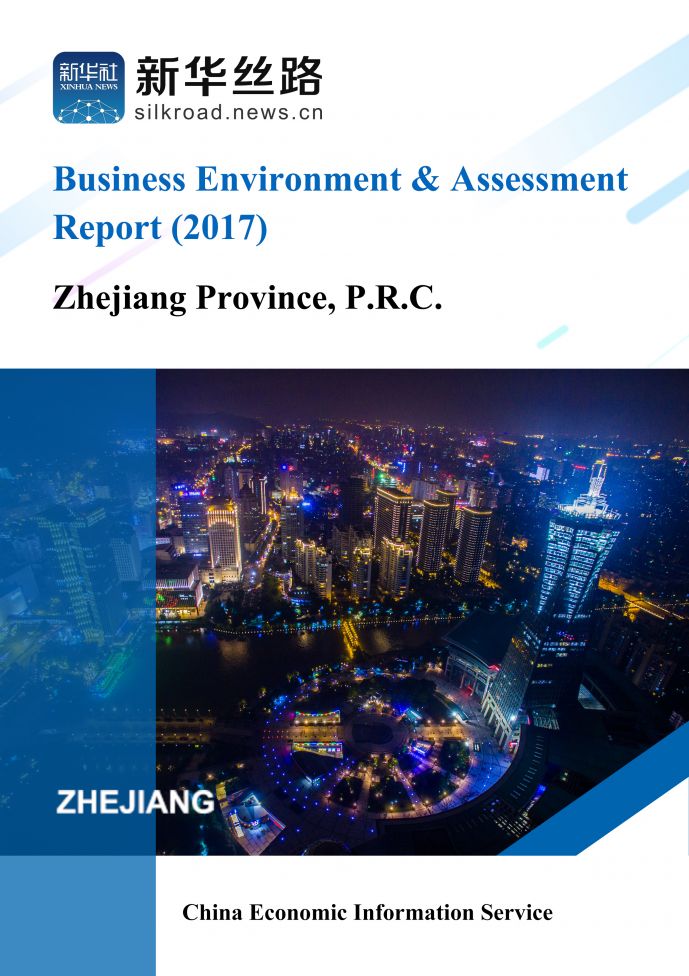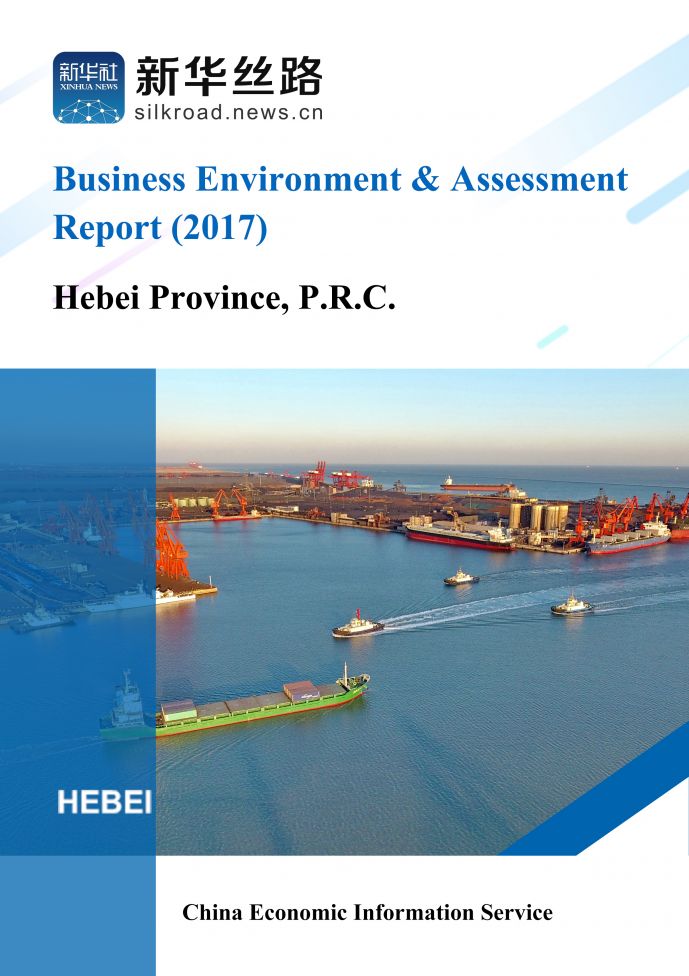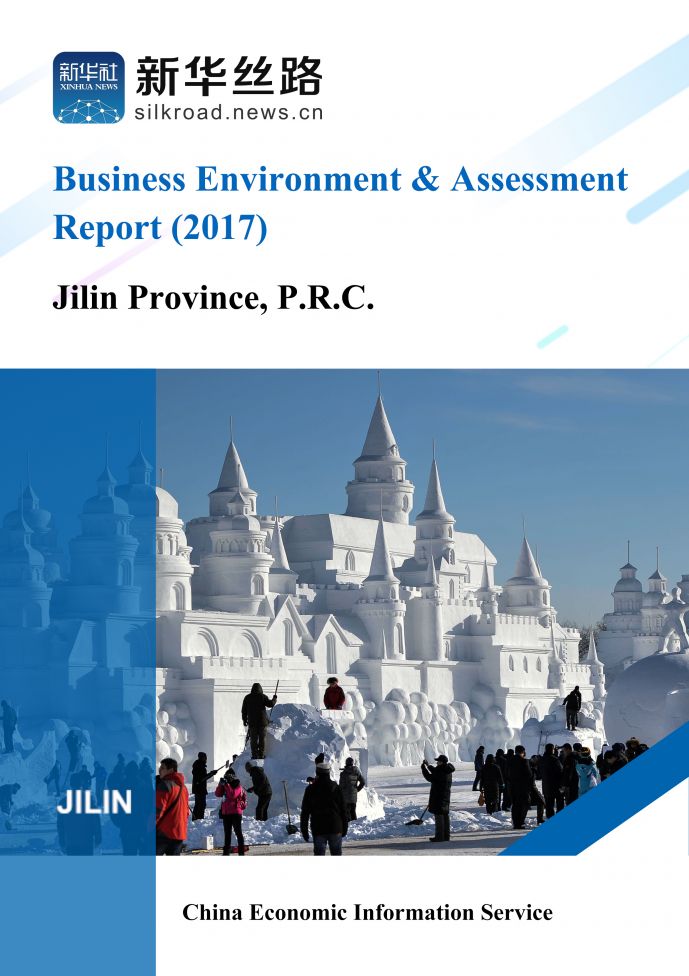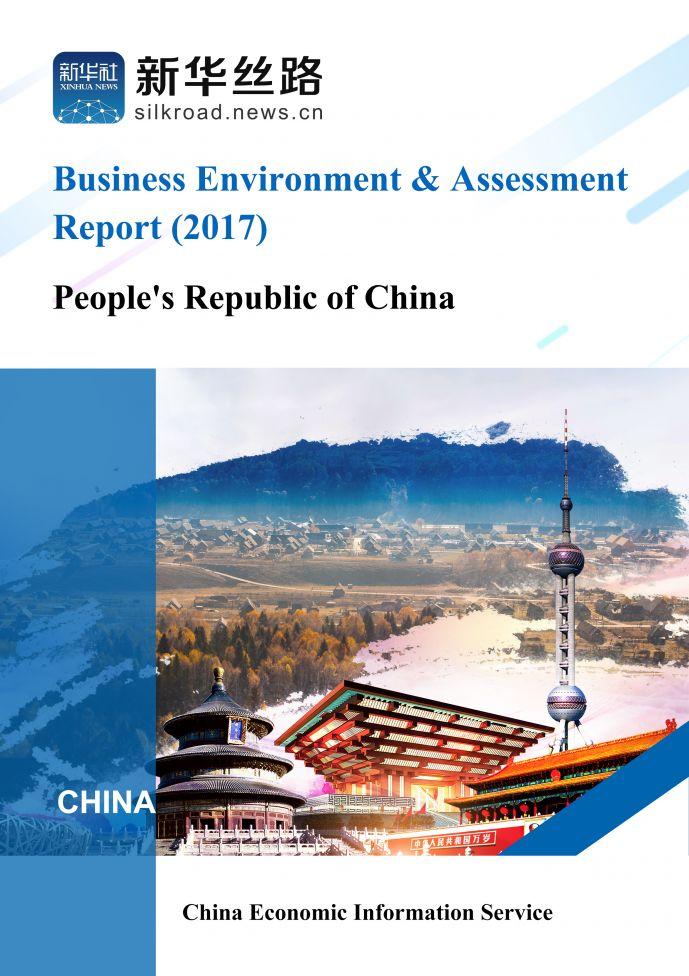BEIJING, Mar.30 (Xinhua) -- Xinhua Silk Road, an information service platform focusing on the Belt and Road Initiative under Xinhua News Agency, launched three reports on the business environment of the provinces of Zhejiang, Hebei and Jilin respectively here on Friday.

According to Zhejiang’s Business Environment & Assessment Report (2017), Zhejiang, one of China’s top foreign investment destinations, has developed a complete platform network for opening up, which is composed of one free trade zone, one opening-up corridor, 79 state and provincial development zones, and eight special customs supervision zones.
Foreign investment in Zhejiang concentrates in the tertiary industry, with service industry accounting for more than half of the total foreign direct investment flows into the province. Data from the Department of Commerce of Zhejiang Province showed that the actually utilized foreign investment in the tertiary industry was 6.62 billion U.S. dollars in the first half of 2017, or 66 percent of the province’s total. A total of 34 Fortune 500 companies opened businesses in Zhejiang in 2017, an increase of 13 over the previous year.
The report said Zhejiang is strong in innovation, ranking fifth in the country in terms of regional creativity, and third in terms of companies’ technological innovation. However, shortages of energy, water, and land resources, as well as high costs of land, have become major factors restricting the growth of foreign-funded enterprises in Zhejiang.

According to Hebei’s Business Environment & Assessment Report (2017), Hebei, a coastal province, accounts for a relatively low proportion of foreign investments in China. The foreign investment in Hebei is mainly concentrated in the secondary industry.
The report said the coordinated development of the Beijing-Tianjin-Hebei region, the establishment of Xiong'an New Area, and the 2022 Winter Olympics will bring Hebei big opportunities to attract foreign investment. Compared with the neighboring Beijing and Tianjin, Hebei, however, lacks a competitive edge in terms of investment environment as companies prefer environments in Beijing and Tianjin.

According to the Jilin’s Business Environment & Assessment Report (2017), Jilin, an important industrial base in China, is in a weak position to attract foreign capital due to its small economic aggregates, poor infrastructure, and unbalanced industrial structure. The report said investors can pay attention to investment opportunities in industries including automobiles and parts, petrochemicals, agricultural products processing, equipment manufacturing, electronic information and high-tech, pharmaceuticals, metallurgy, building materials, light industrial textiles, tourism, and services.
The three reports are part of a series of reports published by Xinhua Silk Road on the business environment of 31 provinces, municipalities and autonomous regions on Chinese mainland. Backed up by Xinhua News Agency’s economic information database and branch network throughout the country, the reports provide nearly 50 indicators in nine aspects and follow the changes in the areas of regional economy and investment policies. The reports also offer some practical advice for investors coming to China.
Launched in July 2015, Xinhua Silk Road is positioned as an information platform, investment adviser and think-tank convergence for all the participants of the Belt and Road construction. As a national “Belt and Road” information service platform, Xinhua Silk Road offers products and services including China Economic Information Wire Service, Belt & Road Weekly, Chinese Companies Inquiry System, website information, database, research & consulting, and offline service.
For the full reports, please call +86-10-63077732, or email silkroadweekly@xinhua.org. (Edited by Ding Lei, dinglei@xinhua.org)




 A single purchase
A single purchase









